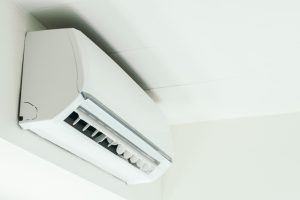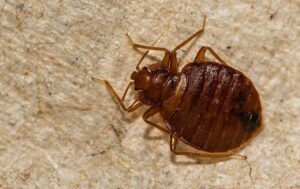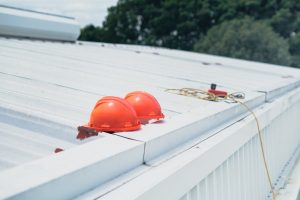What to Expect from a Home Inspection?

Selling your home can be a whirlwind of emotions and a stressful process. No one truly understands just what it takes to sell a home until they do it, so it can be full of new experiences. However, it is a relief and worth it when you get an offer that is better than expected. All the effort and money spent on home improvements can really pay off if you add enough value to your home.
Unfortunately, once you get the dream offer, another nerve-wracking but essential part of the process begins, home inspection. This can be a hurdle to overcome as this is where unexpected issues can turn everything upside down. It can highlight costly repairs that need to be done or make renegotiations happen to lower the sale price. If issues come up that are huge, it could even derail the sale. This is why it is essential for you to understand this process in the sale of your home and be prepared with what to expect from a home inspection.
What is a home inspection?
A home inspection is basically a visual assessment of a property’s structure and systems to pinpoint the condition of the home. It also identifies problems that could impact health and safety. Usually, buyers will pay for the inspection to spot any major issues that could give them second thoughts about your home. It is also done for buyers to avoid any surprise repairs after they move in.
How to find an inspector?
If you’re hiring an inspector, they need to be professional and licensed. It is easier to get help from your agent to choose a proper inspector, but you can also do your own research. Make sure to get recommendations, study each of their websites, and ask them for a sample report to ensure that they’re thorough.
You also need to be clear on what is included and what isn’t in the inspection price, which can cost around $300-$500. The price will depend on the size of the home and what is included. See what will cost extra as you need as many factors inspected as possible.
What do home inspectors look for?
Understanding what inspectors look for in your home can help you tackle issues before the inspection. This is crucial as you want to try and avoid any obstacles that can get in the way of the sale, whether that be the dream offer you want being reduced or the sale collapsing altogether.
A heating system and air conditioning
The inspector will look over your heating system and air conditioning (HVAC) as the buyer will need assurance that it’s efficient and reliable. Even though these systems can last 15 to 25 years, even a newer one can have problems. Any issue can arise which the inspector will look for. It can be as simple as a dirt air filter that can make the system not work efficiently. To avoid this simple and inexpensive fix from arising at the inspection, replace filters every season to maximize the lifespan and efficiency of the system. Another simple fix is dirty or blocked ductwork which can easily be solved by regularly vacuuming vents and air returns.
You should also get regular maintenance checks in the spring and fall by HVAC technicians. Doing this will make problems known and the experts can fix them for you.
Good electrical systems
A home inspector makes safety their first priority, which is why checking the electrical systems is a huge part of the inspection process. An inspector will do a thorough examination of the electrical systems to ensure that they’re in good working order and are safe. This is because electricals are a significant cause of house fires, so it’s at the top of their list to determine if your house is safe. They will check the electrical panel to make sure that wiring and grounding are up-to-date, and they will also look for corroded wires and correct amperage rates.
Popular electrical problems that can be fixed before inspection include exposed wires, aluminum wiring, reversed polarity, and painted outlets. If you ever notice any issues with the electrics in your home, such as hearing sizzling and buzzing sounds, circuit breakers tripping regularly, or the lights dim and flicker, then get an electrician in before your home inspection.
Working plumbing
Due to the health and safety priority, inspectors will examine anything that is affected by water flow. This includes pipes, bathtubs, sinks, faucets, toilets, and showers. Common problems can be dripping faucets, leaky shower heads, and worn toilet flappers. It’s best to check these and update or fix them because, if you don’t, not only do you run the risk of decreasing the sale, but you can also increase water bills by 10%. Replacing gaskets, washers, and other parts saves you money and gives a smooth home inspection.
Look for water backing up in the toilet, sinks, and shower as this will highlight a plumbing issue. The same goes if you notice a sewer odor too. Your home inspection can also bring awareness to health hazards like lead pipes, especially if it’s an older property.
Foundation, basement, and structural elements
You should also expect the inspector to check the foundation, basement, and structural elements of your home to make sure that your property is safe and sturdy. Water in the soil around your home can lead to foundation movement, creating pathways where water can enter the property. This can lead to mold, decay, and termite infestation. An inspector will also look for settlement problems, sloping, and cracks.
If you have a basement, the inspector will examine it for evidence of pests, moisture, and foundation issues. They will also look at structural problems and insulation in the basement. You can expect them to check elements that are connected to the foundation, which includes floors, roof framings, and walls. With this, they will pay plenty of attention to insect and water damage because wood is affected by these elements the most.
You should look at these factors by inspecting the perimeter and basement of your home before the inspection. If you see mold, cracks, dampness, or a musty smell, or have concerns after looking yourself, then get a structural engineer to check and fix issues. If there are small issues, you can possibly fix them yourself. For example, if your roof beams need reinforcing you will only need specialty tools to make them sturdy again, such as screws, a drill, and maybe even drill bits for steel if they’re made from metal.
Good condition walls, ceilings, floors, and doors
As the home inspector will check elements that link to the foundations, it’s best to know the red flags that show your home isn’t structurally safe. Look for cracks in the walls or around door frames, gaps between walls and floors, uneven or bouncy floors, and nails sticking out of walls. You also need to monitor water stains on the walls and ceilings as this can show roof leaks or plumbing issues.
A home inspector will also check that all windows and doors are properly installed. They will see if they open and close correctly, as well as look for cracks, decay, or missing caulk that all leave your property exposed to outdoor elements.
Perfect roof, loft, and insulation
Many buyers are very interested in the condition of your roof because it is a vital part of the home and is expensive to replace. Due to this, the roof is another element that is thoroughly examined. The inspector will also look at gutters, vents, and skylights. Try to spot signs that show your roof needs repairing or replacing. These are loose or missing tiles, buckled tiles, cracks, rust, unevenness, moss growth, moisture in the loft, and stains on the ceiling.
As well as this, the inspector will check the visible insulation and ventilation you have in your home. If you don’t have enough insulation and ventilation, you can decrease the value of your home and impact the sale.
Now you know what to expect from a home inspection, you can confidently proceed with selling your home with no unexpected surprises. Make sure to look for signs in your home and repair or replace them as soon as possible to avoid impacting your sale.






